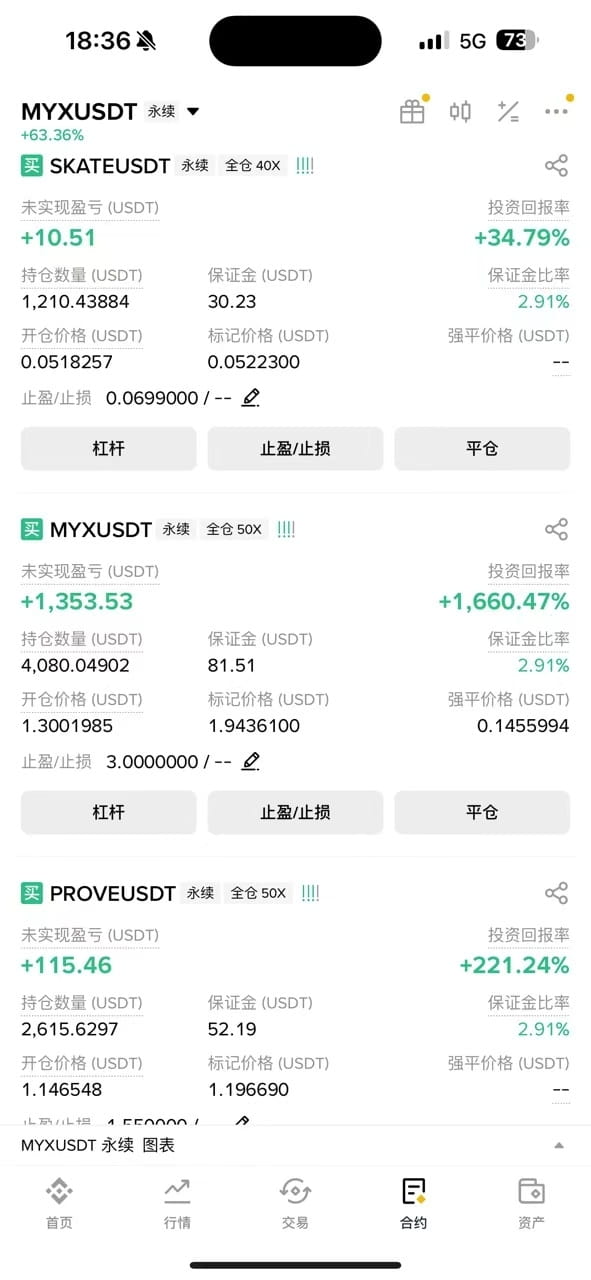Some used this amount to buy a certain cryptocurrency, and a year later, they exchanged it for a vehicle; more people stared at their holdings dwindling to two digits, unable to comprehend where it went wrong.
The answer to this question lies in the folds of the myth of getting rich and is buried in the countless pits that people have stepped in.
Some have rewritten their deposit numbers with it, while many others stare blankly at the plummeting K-line.
Today we won't talk about myths, but rather dissect the survival rules for small funds in the crypto world.
Small funds seeking high returns: temptation and traps coexist.
Some say focusing on altcoins with a market cap below $500 million, finding the right pump opportunity to heavily invest, and then strictly stopping losses can make ten thousand turn into seventy or eighty thousand without much difficulty. This statement is not entirely wrong: small-cap coins have light market caps, and a slight influx of funds can lead to skyrocketing, indeed presenting opportunities for short-term doubling. But hidden behind the 'opportunity' is a higher risk—these coins often lack solid project support, and after a pump, a steep drop is highly probable, with most people getting cut off by stop-losses before benefiting.
Turning a thousand into a hundred thousand means needing to multiply by 100. Even if every operation can earn 10%, it requires 48 consecutive operations without loss; once you lose 20% in any operation, you need to earn 25% back to break even. In a market like crypto, where volatility often exceeds 20%, the probability of this 'perfect operation' is hardly better than winning the lottery.
Don't let the 'dream of getting rich' turn into a 'survival crisis'
There are always people who get carried away by 'hundreds or thousands of times profits' and make irrational choices: some bet all their living expenses, some borrow online loans to enter the market, and I've even heard extreme cases of overdrawing credit just to raise capital. These behaviors have long deviated from the essence of investment, turning into reckless gambling.
The premise of investing is to 'act within your means'—only use money that won't affect your life even if you lose it, so you won't be driven to desperation by market fluctuations. No matter how tempting the returns in the crypto world are, they should not become a reason to overextend your life.
How to look at specific targets? Staying clear-minded is crucial.
For example, for NFT ecosystem game tokens like YGG, currently priced at $0.47, some see targets of $1.4 or even $1.7. Such judgments may be based on market sentiment or short-term capital flows, but it's important to know: the price of NFTs and game tokens is highly dependent on ecological activity. Once the market cools down or project progress falls short of expectations, the pullback can come quickly and violently.
Short-term operations can be attempted, but strict stop-losses must be set (for example, exit if it drops below $0.4); don’t turn 'short-term opportunities' into 'long-term beliefs'. For small funds, protecting the principal is more important than chasing high targets.
Technical analysis: Don't be misled by speculations of 'whales washing the market'.
When Bitcoin fluctuates around $90,000, there are always people saying 'this is a whale wash', and even asserting 'breaking $109,000 means a skyrocketing market'. These judgments sound exciting, but don't forget: there are no 'absolute rules' in the crypto world, and whale operations are often untraceable.
For beginners, instead of guessing 'whale intentions', it's better to learn basic logic: for example, observe whether trading volume corresponds with price increases, where support and resistance levels are, and whether overall market sentiment is greedy or fearful. The ability to think independently is more reliable than any 'expert predictions'.
Platform choice: Safety is more important than 'size'.
When choosing a trading platform, the core is 'compliance' and 'safety'. Large platforms like Binance and OKEx do have stronger financial capabilities and risk control, but the claim of 'never touching other platforms' is too absolute—the key is to see whether the platform has regulatory licenses, whether there have been security incidents, and how the user reputation is.
Scam platforms and 'pig butchering' schemes often use 'high yield temptations' and 'instant withdrawal gimmicks'; once involved, you may not only be harvested but also unable to withdraw your principal. It's best for beginners to start with platforms that have clear regulatory backing; don't throw your funds into unknown risks just to save a bit on fees or chase small discounts.
Finally: Respect the market, and you can live longer.
The crypto world indeed has opportunities, but these opportunities are only for those who are prepared: those who understand technical analysis, can control their emotions, manage risks, and most importantly—have a reverence for the market.
Can a thousand dollars become a hundred thousand? Theoretically, it's possible, but in reality, the greater probability lies in repeatedly testing and understanding your own limits. Instead of fantasizing about 'getting rich overnight', it's better to learn 'long-term survival' first: practice with small funds, accumulate experience, and when your understanding of the market is deep enough, gradually increase your investments.
The winning formula for trading has never been 'talent', but 'rationality'—watch more, think more, summarize more; maintaining your rhythm amidst volatility is more important than anything.

